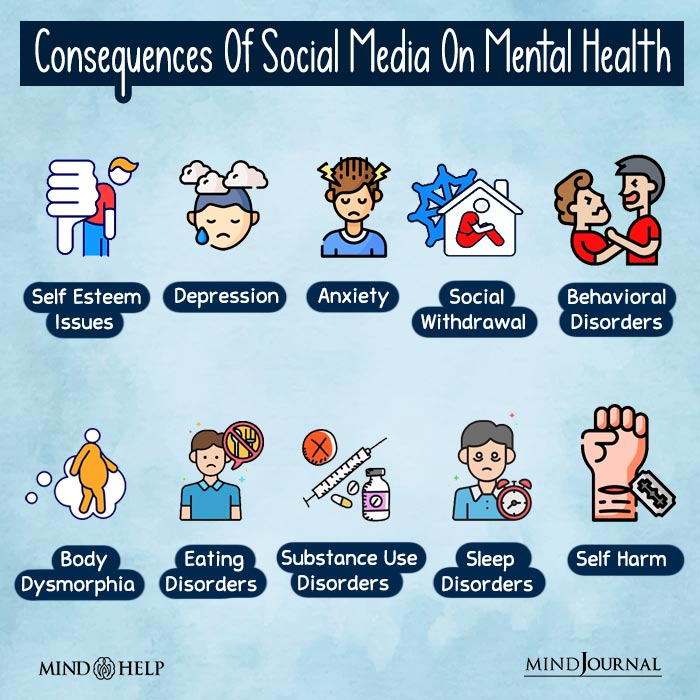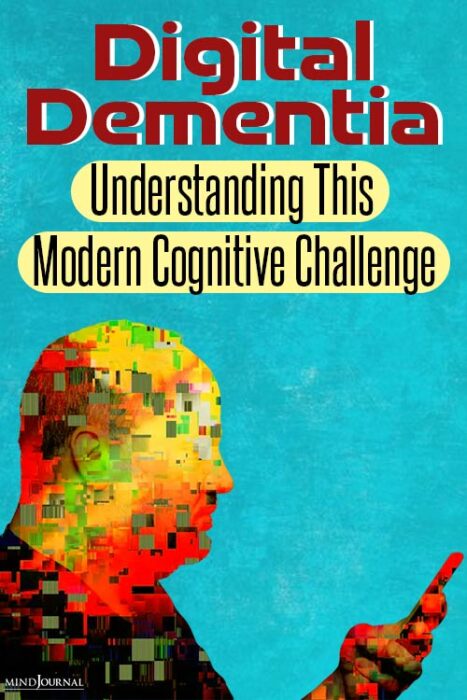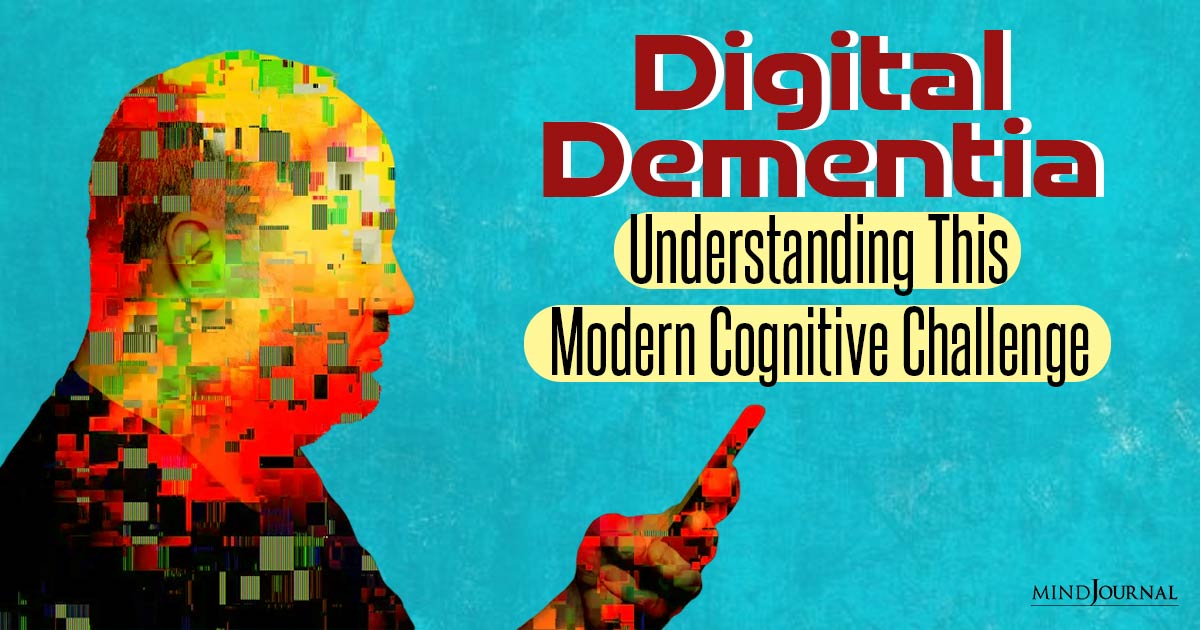Are you constantly glued to your smartphone, scrolling through social media or binge-watching your favorite series? Do you find it hard to concentrate or remember things? If so, you might be experiencing the effects of a modern-day phenomenon known as electronic dementia or digital dementia.
In this digital age, where electronic devices dominate our lives, it’s crucial to understand the impact they can have on our cognitive abilities. Let us delve into digital dementia meaning, explore its causes, and discuss potential options for digital dementia treatment.
What is Electronic Dementia?
Digital dementia meaning: Digital dementia refers to a condition characterized by cognitive deficits and memory problems resulting from excessive reliance on electronic devices.
It primarily affects individuals, especially young people, who spend excessive time using smartphones, tablets, computers, and other electronic gadgets. The constant exposure to screens and the overreliance on digital tools can lead to imbalances in brain development and functioning.
Related: What Your Social Media Reveals About You: 17 Truths You May Be Unaware Of

Signs and Symptoms of Electronic Dementia
Here are some of the most common signs of electronic dementia or digital dementia –
1. Memory Problems
One of the most common symptoms of digital dementia is memory impairment. Individuals may experience difficulties remembering important dates, appointments, or even simple details of daily life.
2. Attention and Concentration Issues
Excessive exposure to electronic devices can lead to attention and concentration problems, making it challenging to stay focused on tasks or conversations.
3. Poor Fine Motor Skills
Repetitive use of electronic devices can negatively impact fine motor skills, as excessive typing, texting, and swiping limit the development of hand-eye coordination.
4. Language and Communication Difficulties
Digital dementia can affect language skills, including reading, writing, and verbal communication. Individuals may struggle to express themselves coherently or experience difficulties in understanding complex texts.
Here are some other signs of electronic dementia –
- Short attention span
- Memory problems
- Reduced concentration
- Difficulty in multitasking
- Emotional fluctuations
- Over-reliance on devices for basic tasks
- Decreased ability to think deeply
- Frequent headaches or eye strain
- Poor posture and physical discomfort
- Difficulty reading longer texts
- Reduced problem-solving skills
- Sleep disturbances due to screen time
- Withdrawal from offline social interactions
Causes of Digital Dementia
Here are some factors that may cause the development of this condition –
1. Overstimulation and Shallow Information Processing
The digital world bombards us with an overwhelming amount of information, often delivered in bite-sized and easily digestible formats.
As a result, our brains become accustomed to quick, shallow information processing, neglecting the deeper cognitive processes required for critical thinking, analysis, and memory consolidation.
2. Reduced Physical Activity and Social Interaction
Excessive screen time often leads to a sedentary lifestyle, reducing opportunities for physical activity and face-to-face social interactions.
Lack of exercise and social engagement can have detrimental effects on brain health, increasing the risk of cognitive decline and memory problems.
3. Multitasking and Information Overload
Engaging in multiple tasks simultaneously, such as texting while watching TV or studying while browsing the internet, can overload our cognitive resources.
Constant multitasking makes it difficult for our brains to focus, concentrate, and retain information effectively.
Related: 18 Reasons Why Social Media Makes Us Hate Ourselves

Digital Dementia Treatment
Here are some treatment approaches for electronic dementia or digital dementia that can prove helpful and effective –
1. Digital Detox
Taking regular breaks from electronic devices can help reset our brains and reduce the negative effects of digital dementia.
Designate specific periods during the day as screen-free time, engaging in activities like exercise, hobbies, or spending quality time with loved ones.
2. Cognitive Stimulation
Engaging in activities that challenge the brain, such as puzzles, reading, and learning new skills, can help counteract the cognitive deficits associated with digital dementia.
These activities promote neuroplasticity, enhancing memory, attention, and overall cognitive functioning.
3. Establishing Healthy Habits
Setting boundaries and establishing healthy habits around electronic device usage is crucial.
Limit screen time, particularly before bedtime, to ensure quality sleep, as sleep deprivation can further exacerbate cognitive problems.
4. Physical Exercise and Social Interaction
Regular physical exercise not only improves overall health but also stimulates brain function.
Engage in activities that promote physical movement and social interaction, such as outdoor sports, group exercises, and social gatherings, to enhance cognitive well-being.
Sarah’s Struggle with Digital Dementia
Sarah, a 25-year-old marketing professional, was a heavy user of electronic devices. Constant smartphone usage, social media scrolling, and binge-watching TV shows on her tablet had become a routine. Unbeknownst to her, this excessive screen time was impacting her cognitive abilities.
Sarah started experiencing memory problems, forgetting important meetings and struggling to recall conversations. Concentration became difficult, affecting her work performance. Seeking help, Sarah was diagnosed with electronic dementia or digital dementia, a condition caused by overreliance on electronic devices.
Her treatment plan involved a digital detox, setting boundaries, and engaging in cognitive stimulation. Sarah reduced screen time, kept her phone away during work, and avoided screens before bed. She challenged her brain with puzzles, reading, and painting.
Sarah also incorporated regular exercise, joining a fitness group for physical activity and social interaction. Over time, her memory improved, concentration increased, and she regained confidence in handling tasks.
This case highlights the detrimental effects of excessive screen time on cognitive abilities. Through a digital detox, cognitive stimulation, and physical exercise, Sarah successfully mitigated the impact of electronic dementia and regained control over her cognitive health.
It serves as a reminder to find a healthy balance between our digital lives and mental well-being.
Related: What Your Instagram Reveals About Your Personality, According To Science
Takeaway
In this era of digital dominance, it is essential to recognize the impact excessive electronic device usage can have on our cognitive abilities. Electronic dementia is a real concern that can lead to memory problems, attention issues, and impaired communication skills.
By understanding its causes and implementing preventive measures, such as digital detox, cognitive stimulation, and healthy habits, we can mitigate the risks and protect our cognitive health.
Let’s strive for a balanced approach to technology, finding harmony between the benefits of the digital world and the preservation of our mental faculties.
Frequently Asked Questions (FAQs):
How do you overcome digital dementia?
Limit screen time, prioritize physical activity, practice mindfulness, read books, take breaks, improve sleep, engage in offline hobbies, strengthen cognitive skills.
Is digital dementia reversible?
Yes, digital dementia symptoms can improve with reduced screen time, cognitive exercises, lifestyle changes, and adopting healthy digital habits. Early intervention helps.
How does digital dementia develop?
Excessive digital device use, multitasking, over-reliance on technology, reduced brain engagement, lack of physical activity, disrupted sleep patterns, and decreased offline interactions.









Leave a Reply
You must be logged in to post a comment.